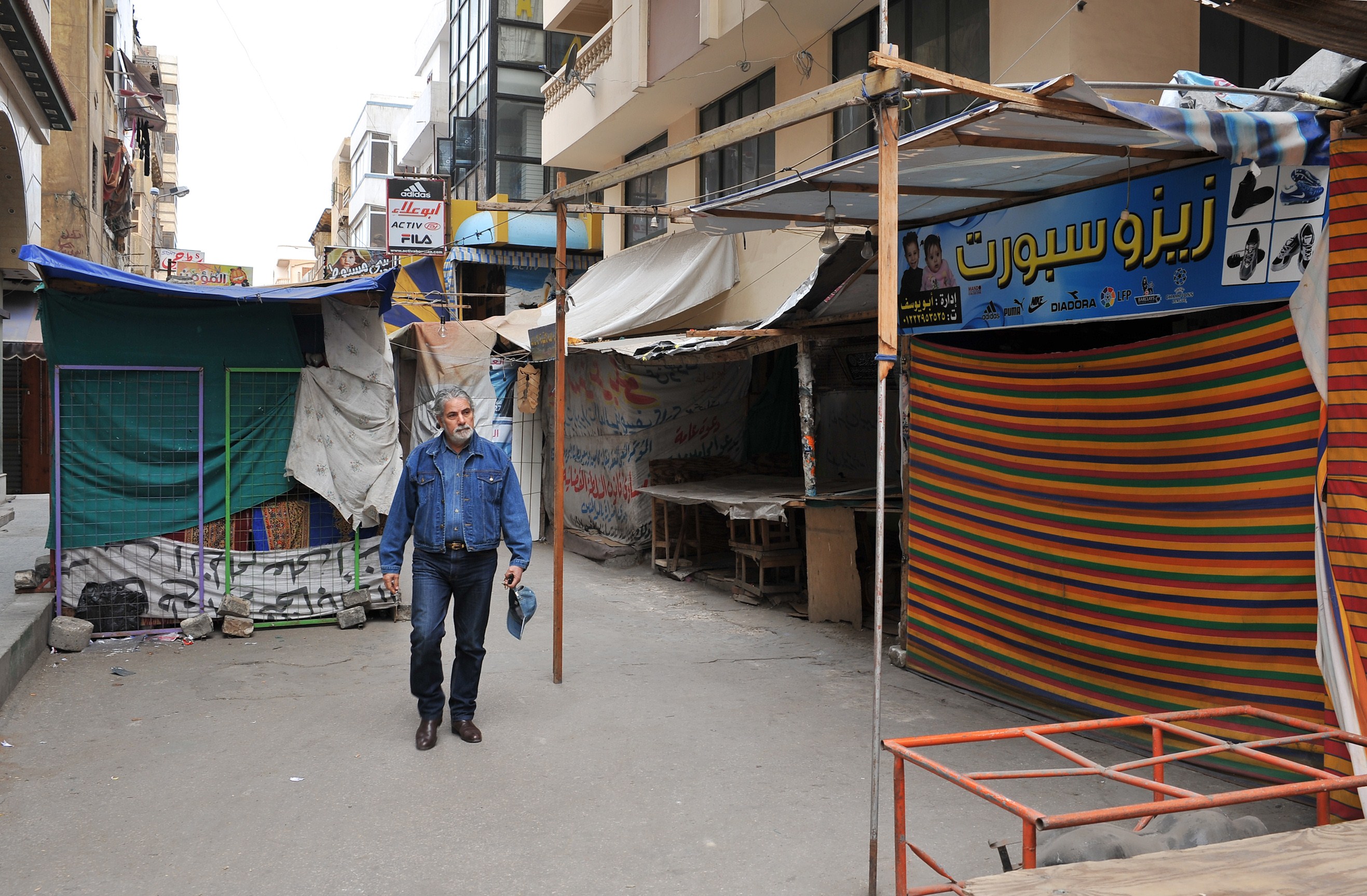
AFP Photo / Stringer
Unrest continued in several governorates on Tuesday, as calls for civil disobedience escalated in canal governorates and spread to the governorate of Kafr El-Sheikh.
In reaction to the escalations, the presidency issued a statement on Tuesday stating that President Mohamed Morsi submitted a new law proposal to the Shura Council to re-launch Port Said’s free trade zone. The statement added that Morsi has decided to allocate EGP 400m of the annual revenues of the Suez Canal to the development of canal governorates of Suez, Ismailia and Port Said and providing new jobs for their residents.
In Port Said, protesters entered the third day of civil disobedience criticising the government’s management of investigations regarding the death of Port Said residents during violent clashes following the court verdict on the Port Said massacre last month.
Protesters called for immediate investigations into the death of more than 40 Port Said residents and the injury of more than 100 people during the clashes. Protesters also demanded the dismissal of the Minister of Interior and the chief of the Port Said security directorate, calling for them to be referred to trial for being responsible for the death of Port Said residents.
Reacting to the protests, the Strong Egypt and Al-Dostour parties decided to suspend their activities in Port Said in statements issued on their Facebook pages. Some media agencies reported that the Popular Current also suspended its activities in the canal governorate, but it was not possible to verify the media reports.
On Monday, Port Said Governor Ahmed Abdallah announced that Minister of Justice Ahmed Mekki had assigned a judge to investigate the violent clashes. However, this failed to mollify protesters in Port Said.
Mahmoud Nabil, activist and Port Said resident, said the Free Trade and Investment Authority issued a statement announcing its solidarity with protesters. The statement said that work at the authority’s companies would end at 12 midday. Nabil asserted that several marches composed of workers from the authority’s companies joined protesters in front of the governorate building.
Protesters chanted slogans criticising Morsi and the Muslim Brotherhood, while activists reported that some slogans called for announcing Port Said’s independence from Egypt.
Nabil affirmed the protesters’ demands and added that they are also demanding Morsi’s resignation. “We heard that some residents of Port Said are negotiating with the presidency, and I can assure you that they do not represent the people of Port Said. We are sticking to our demands,” he added.
The activist claimed that Port Said residents agreed on banning political activities and elections in Port Said, adding that calls for announcing Port Said as an independent state are only impulsive reactions born from the anger of Port Said citizens.
Anadolu news agency reported on Tuesday that almost all stores in the Al-Arab district are closed, while 80% of stores in the eastern district are also closed. It added that many students did not go to school, estimating that 90% of students stayed at home.
Workers from the Port Said shipyard continued their strike and joined marches across the streets of the Port Fouad district later on Tuesday.
Workers at other institutions also participated in the protests, which were initially called for by members of the Ultras Green Eagles (Al-Masry football club fans). Some protesters spent Monday night in tents at the Shohadaa’ Square in front of the Port Said governorate building.
In Suez, shipment workers at Abadiya Port and Port Tawfeq Port began a strike, reacting to the negligence showed by government officials to their demands.
The workers are demanding the abolishment of the current investment law, and its replacement by Law 203. Under the investment law, workers are employed under temporary contracts and receive wages in the form of a percentage of the port’s profits. Law 203 would offer workers permanent contracts with state-owned institutions, accompanied by better benefits and better job security.
Workers threatened to extend their strike to Nuweiba and Safaga ports if their demands are not met.
Ahmed Mansour, one of the striking workers, said the CEO of the port authority left his office two weeks ago after he failed to reach a compromise with workers regarding their demands.
Kafr El-Sheikh followed in the footsteps of the canal cities, with its first day of civil disobedience on Tuesday as protesters closed down the governorate building, Tax Authority, and the insurance directorate.
Protesters evacuated employees from the buildings and took to the streets of Dossouq city, demanding the dismissal of Saad El-Husseiny, governor of Kafr El-Sheikh, and Abdel Lateef El-Hellessy, deputy head of Dossouq city council.
Ahmed Shawky, spokesperson for the 6 of April movement (the Ahmed Maher front) in Kafr El-Sheikh, affirmed the protesters’ demands and added that they initially took to the streets in solidarity with the residents of Port Said.
Mahalla also witnessed another round of protests, where protesters gathered in front of the city council building calling for civil disobedience. However, the calls were ignored by most residents of Mahalla, according to Ahmed Abdel Kader, a member of the Al-Dostour Party in Mahalla.
Calls for civil disobedience were also neglected in Ismailia. However, several revolutionary groups announced that civil disobedience would begin in the governorate on Wednesday.
Additional reporting by Hassan Ghonema

